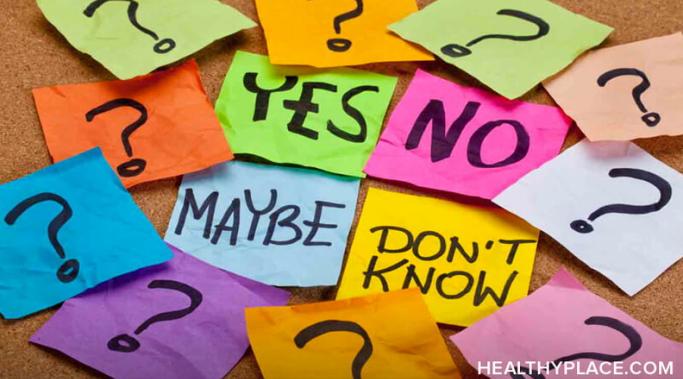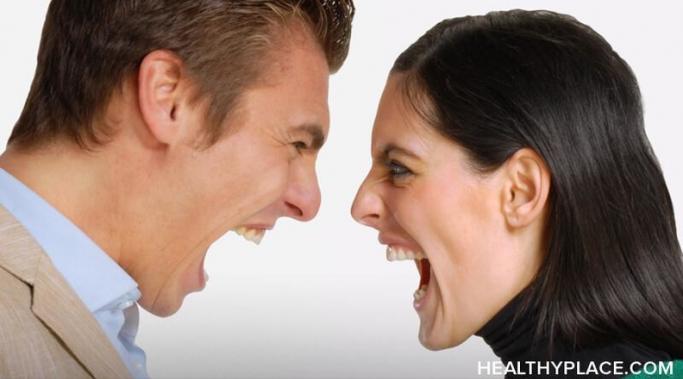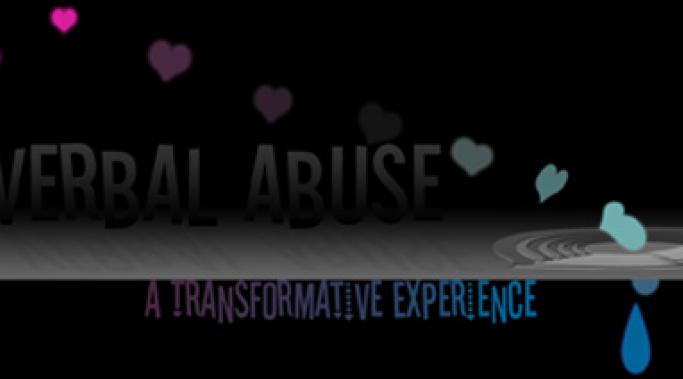In an abusive relationship, it is important for abuse victims to realize the warning signs of impending abuse. We need to know that the relationship is a battleground ready to erupt in controlled violence at any second. You, the targeted victim, can learn to predict when abuse is about to happen if you pay attention to tell-tale signs within yourself and broadcast by your abuser. I can tell you what happened within me before abuse erupted, and my hope is that you will be able to use the examples in my list to recognize and write down your warning signs of impending abuse too.
Stop Abuse
This week I am fortunate to be in New Hampshire on business. (How fun was it to write that statement?! Me on a business trip!) I used to think I would never have a job that I love that allowed me to travel even sporadically, but I do, and I am grateful. Yesterday, our facilitator mentioned a factor of leadership which was "information-seeking questions" and how to ask them without making the person you're asking feel defensive.
The problem is in the wording. For example, a question beginning with "Why do you...?", especially when asked during a personal conflict, can easily escalate the conversation into anger and defensiveness.
Why?
Setting boundaries in abusive relationships lets the abuse victim see how rampant the abuse has become. When it becomes clear that the abuser disrespects your boundaries--repeatedly--the relationship becomes more tiresome and the abuse more obvious, increasing the chance that you will find a way to leave. A personal boundary is a rule that you say cannot be broken without consequence. Consequences for breaking your personal boundaries are not punishments for the person breaking them. The consequence involves you doing something good for yourself right away.
I watched The Burning Bed this week. Farrah Fawcett plays abused wife Francine Hughes who murdered her husband after suffering years of abuse. In court, Sarah Hughes was found innocent by reason of temporary insanity (Battered Woman Syndrome).
After watching the movie, I wanted to find out more about the case and ran across an interview in which a man from the Hughes' town said that Francine beat her husband, too. He saw her beating him right there on the sidewalk outside his door and the police were called to separate them.
My stomach felt sick. His viewpoint of the Hughes' fight reflected the views of many people looking into an abusive relationship - the victim dished it out as good as she got. They're both at fault (What Are Victims Responsible for in an Abusive Relationship?).
My mind would swirl around and refuse to be still during my time with him. I would start a project and then throw it aside, or begin cleaning the bathroom and then find myself folding clothes while the bathroom went unfinished. I'd decide to go to the grocery but somehow forget to go because the mess in my head distracted me and tossed me in another direction.
There are several ways to make your abuser feel like you do and get some sweet revenge. It is possible for your abuser to feel unloved, controlled and disrespected. It's relatively easy to get some revenge on your abuser by irritating your abusive relationship. Try these tips and see if you can’t elicit the hostility your abuser holds under the surface of his otherwise calm demeanor. You too can get revenge on your abuser by making him feel like you do.
When you love someone who is being abused, so much of it doesn't make any sense at all! You look at the wonderful human being in front of you, confused and knotted up inside and red-eyed and snotty on the outside, and wonder, "Why? Why are you, my beautiful (daughter, friend, son...) so insanely sad over those lies that idiot feeds you?!"
You want to "go over there" and give that so-and-so a piece of your mind, a good whomping, SOMETHING to make them understand that what they're doing to your beloved is NOT RIGHT.
What if, just for now, you were able to shrink your abuser's voice down to nothing? What would it be like if you stopped imagining that those hurtful words came from a place of love or concern? What would it feel like to know in your heart and mind that what that abuser said had no relevance to your reality, that your abuser was the one in La-La Land, not you?
What would it be like to trust your own perceptions, to move about freely without fear of reprisal?
In the beginning, he told me stories about the hardships he'd endured, and I thought I could be the one to show him what happiness felt like; I thought I could coax his mind away from the anger he held and fill his heart with love despite the pain he felt inside. I wanted him to have brightness and beauty in his life to rival the heartbreak and anger. I never thought I would become the source of his anger, the reason for his pain, or hated.








